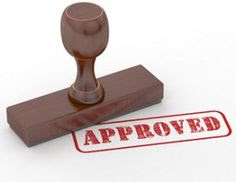The provisions of The Karnataka Stamp Act, 1957 regarding Adjudication as to stamps are as below;
Section 31. (1) When any instrument, whether executed or not and whether previously stamped or not is brought to the Deputy Commissioner, and the person bringing it applies to have the opinion of that officer as to the duty (if any) with which it is chargeable, and pays a fee of (one hundred rupees) the Deputy commissioner shall determine the duty (if any) with which, in his judgement, the instrument is chargeable.
(2) For this purpose the Deputy commissioner may require to be furnished with an abstract of the instrument, and also with such affidavit or other evidence as he may deem necessary to prove that all the facts and circumstances affecting the chargeability of the instrument with duty or the amount of the duty with which it is chargeable are fully and truly set forth therein, and may refuse to proceed upon any such application, until such abstract and evidence have been furnished accordingly:
Provided that –
(a) No evidence furnished in pursuance of this section shall be used against any person in any civil proceeding except in any enquiry as to the duty with which the instrument to which it relates is chargeable; and
(b) Every person by whom any such evidence is furnished, shall on payment of the full duty with which the instrument to which it relates, is chargeable, be relieved from any penalty which he may have incurred under this Act by reason of the omission to state truly in such instrument any of the facts or circumstances aforesaid.
Certificate by Deputy Commissioner.
Section 32.(1) When an instrument brought to the Deputy Commissioner under section 31, is in his opinion, one of a description chargeable with duty, and
(a) The Deputy commissioner determines that it is already fully stamped, or
(b) The duty determined by the Deputy Commissioner under section 31, or such a sum as, with the duty already paid in respect of the instrument, is equal to the duty so determined, has been paid, the Deputy Commissioner shall certify by endorsement on such instrument that the full duty (stating the amount) with which it is chargeable has been paid.
(2) When such instrument is, in his opinion, not chargeable with duty, the Deputy Commissioner shall certify in manner aforesaid that such instrument is not so chargeable.
(3) Subject to any orders made under Chapter VI, any instrument upon which an endorsement has been made under this section shall be deemed to be duly stamped or not chargeable with duty, as the case may be; and, if chargeable with duty, shall be receivable in evidence or otherwise, and may be acted upon and registered as if it had been originally stamped:
Provided that nothing in this section shall authorise the Deputy Commissioner to endorse-
(a) Any instrument executed or first executed in India and brought to him after the expiration of one month from the date of its execution, or first execution, as the case may be;
(b) any instrument executed or first executed out of India and brought to him after the expiration of three months after it has been first received in the State of Karnataka; or
(c) any instrument chargeable with a duty not exceeding fifteen paise or a mortgage of crop (Article 35 (a) of the Schedule) chargeable under clause (a) or (b) of section 3 with a duty of twenty-five paise, when brought to him, after the execution thereof, on paper not duly stamped.
For More Information:

No comments:
Post a Comment